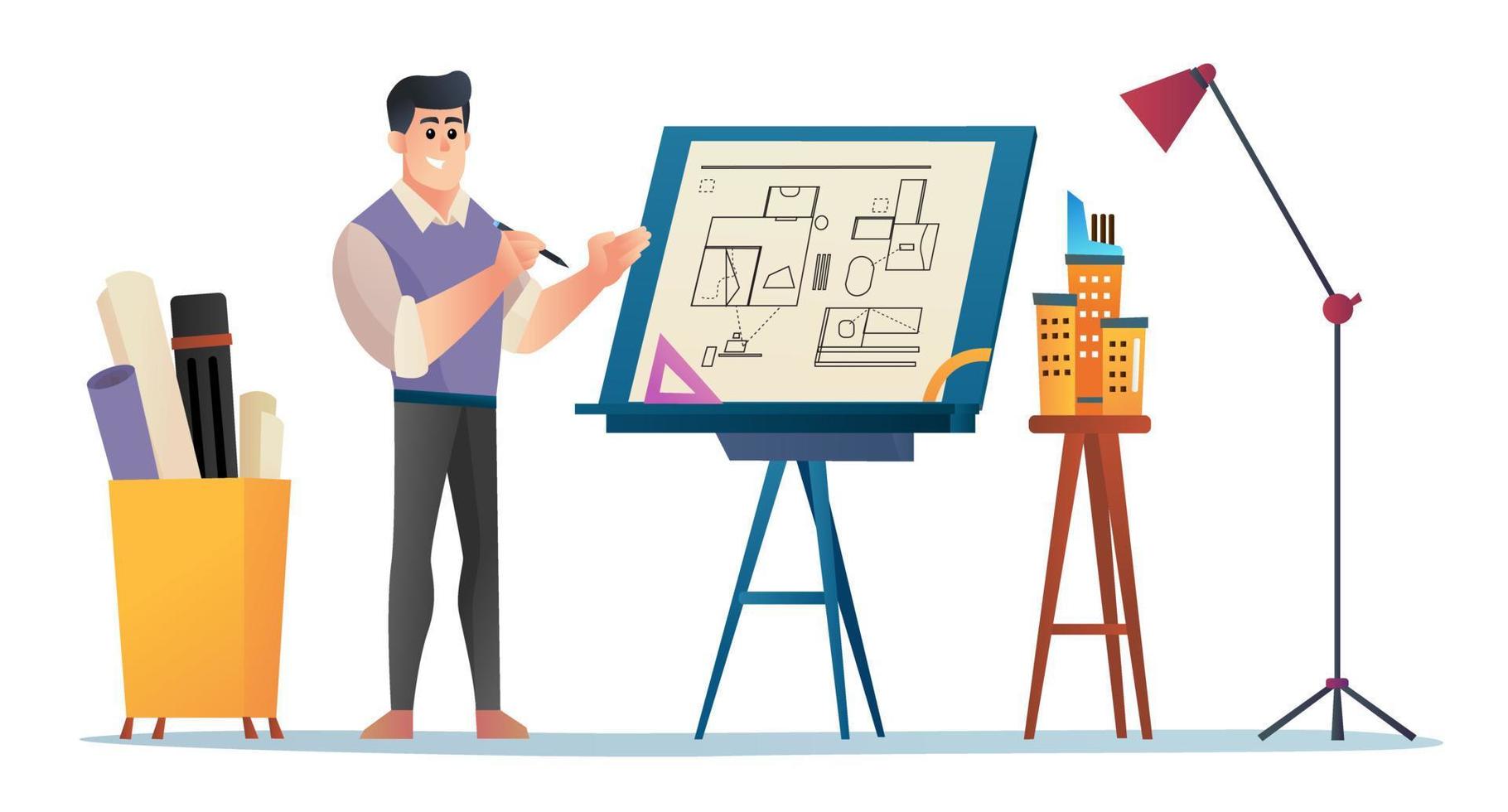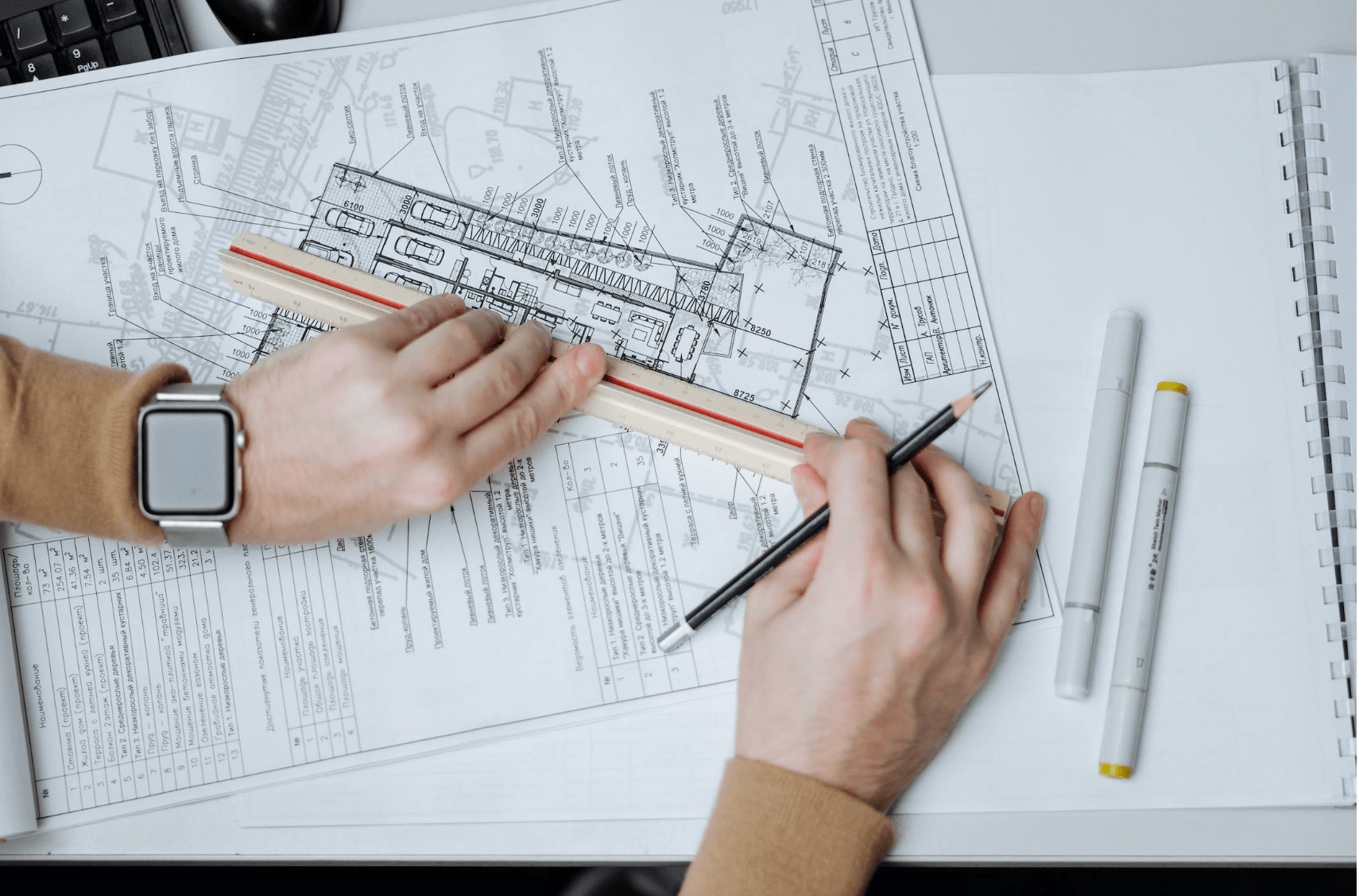Discover the Vital Abilities and Qualities Every Architect Have To Possess
As an architect, you recognize that success in your area goes beyond simply technical abilities. Each high quality plays an essential duty in your capacity to develop spaces that inspire and operate well.
Creative Thinking and Technology
Imagination and advancement are at the heart of architecture, driving the style of areas that inspire and work seamlessly. As a designer, you'll require to assume outside the box, pressing borders to create one-of-a-kind services for your customers. You'll regularly explore brand-new materials, methods, and innovations to boost your styles. Welcoming technology implies remaining ahead of patterns while being versatile to alter.
You'll likewise attract motivation from different resources-- nature, art, and also everyday life can trigger fresh ideas. This ability to mix imagination with functionality enables you to attend to complex problems, ensuring your designs satisfy both aesthetic and practical requirements.
Solid Interaction Abilities
While designing exceptional rooms calls for imagination, solid interaction skills are just as essential for architects. You need to communicate your concepts plainly to clients, service providers, and employee. Paying attention is equally as crucial; understanding your customer's vision aids you create designs that really meet their needs.
You'll usually need to clarify intricate principles in such a way that's very easy to understand, whether you're offering a proposition or going over products. Efficient communication fosters collaboration, guaranteeing everyone gets on the very same page throughout the task.
Structure partnerships is necessary, too. When you develop depend on and connection, clients are most likely to share their issues and responses, resulting in far better results.
Last but not least, do not ignore the power of body language and visual help. They can improve your message and make your presentations a lot more engaging. Solid interaction abilities not just boost your layouts but additionally reinforce your specialist relationships in the building world.
Technical Effectiveness in Design Software Application
As you browse the ever-evolving globe of architecture, grasping layout software program ends up being crucial for translating your imaginative concepts into substantial strategies. Acquainting on your own with programs like AutoCAD, Revit, and SketchUp will not only improve your style capabilities yet likewise streamline your operations. These devices permit you to create thorough drawings, 3D designs, and also simulations that can aid you visualize and offer your concepts a lot more efficiently.
Exceling in these software program applications likewise enhances your collaboration with designers and service providers, as everybody can work from the exact same electronic foundation. Furthermore, your capability to adapt to new modern technologies will certainly keep you competitive in the area. On a regular basis upgrading your abilities and discovering brand-new attributes can set you besides your peers, guaranteeing your styles are cutting-edge and specific. Inevitably, technical effectiveness in layout software program is a keystone of effective design, assisting you bring your visions to life.
Comprehending of Design Principles

Recognizing design principles also enables you to anticipate potential difficulties early in the layout procedure. When you understand how different materials behave under numerous conditions, you can make informed selections that enhance your designs. Your designs need to not only be visually pleasing yet sustainable and likewise sensible.
Additionally, a strong understanding of design principles enables you to introduce within constraints. You can push innovative borders while still sticking to safety requirements. Inevitably, this understanding enriches your architectural method and establishes you apart in an affordable area.
Task Administration Abilities
Reliable job monitoring capabilities are vital for architects, enabling you to look after all facets of a job from perception to conclusion. You'll need to coordinate with different stakeholders, consisting of clients, designers, and service providers, guaranteeing everybody's on the very same web page. Establishing clear goals, timelines, and budget plans is fundamental; it aids you maintain the task on course and within extent.
As an engineer, you should likewise be proficient in jeopardy administration, recognizing possible issues prior to they rise. Strong communication skills are very important, permitting you to verbalize your vision and encourage your group. You'll profit from being organized and detail-oriented, as this assists enhance procedures and prevent costly hold-ups.
Furthermore, adaptability is key; jobs frequently evolve, and being versatile enables you to respond successfully to adjustments. Ultimately, your job administration abilities can significantly affect the success of your building ventures, guaranteeing you deliver top quality results in a timely manner and within budget plan.
Focus to Information
While handling jobs is necessary, your interest to information can make a substantial difference in the top quality of your work. Every line you attract, every product you pick, and every tiny requirements you note contributes to the overall success of a project. You need to be thorough, ensuring that your styles not just meet visual requirements but also abide by constructing codes and regulations.
Missing out on even a tiny detail can result in expensive alterations or safety issues down the line. By growing an eager eye for detail, you boost your capacity to spot potential troubles prior to they intensify. This vigilance not only saves you time and resources however also constructs your reputation try this out as a trusted Architect. Keep in mind, see here it's often the smallest details that raise a job from good to phenomenal. So, embrace this ability, and let it lead your layout process, ensuring that your vision is implemented perfectly.
Adaptability and Problem-Solving Abilities
As an architect, you'll usually encounter unexpected adjustments in design and project needs. Your capability to welcome these changes and locate ingenious options is vital for success. Remaining adaptable in your technique not just enhances your analytical skills yet also maintains your projects on the right track.
Accepting Modification in Style
Welcoming modification in style is necessary for architects, specifically when steering progressing customer demands and arising innovations. You need to cultivate flexibility, as projects frequently change instructions based on new insights or constraints. Being open to change allows you to explore innovative approaches and create solutions that reverberate with your customers.
When faced with difficulties, your problem-solving skills enter into play. You'll commonly need to reconsider principles and adjust intend on the fly, making certain that the last end result lines up with the client's vision while meeting security and regulatory standards. By being flexible and resourceful, you not just boost your designs yet likewise develop count on with your clients, proving that you can browse the complexities of modern architecture successfully.
Ingenious Solutions to Obstacles

Adaptability in Job Management
While maneuvering the complexities of job monitoring, adaptability ends up being an essential property for architects. You'll frequently face unexpected difficulties, from design modifications to budget plan restraints, needing quick reasoning and flexibility. Accepting adjustment enables you to pivot your methods and locate cutting-edge services, making sure task success.
Strong problem-solving skills are essential; they allow you to assess circumstances, evaluate alternatives, and apply effective options on the fly. When collaborating with varied teams, being open to comments and alternate ideas cultivates collaboration and sparks imagination.
Often Asked Inquiries
What Educational History Is Called For to End Up Being an Engineer?
To end up being an engineer, you'll need a minimum of a professional level in design, usually a Bachelor's or Master's. Acquiring and finishing a teaching fellowship licensure through tests is vital for your job improvement.
Just How Vital Is Networking in the Design Area?
Networking's necessary in architecture. It aids you develop partnerships, find task chances, and gain understandings from skilled specialists. By connecting with others, you enhance your occupation potential customers and stay upgraded on industry fads and growths.
What Are the Typical Job Paths for Architects?
Typical career courses for architects consist of design duties in companies, job administration, metropolitan preparation, and specialized areas like sustainable style. Architect. You might additionally discover mentor or consulting, relying on your rate of interests and experiences
How Can Architects Stay Updated With Industry Trends?
To stay updated with market fads, you ought to routinely go to seminars, join professional organizations, subscribe to relevant magazines, and engage with on the internet forums. Connecting with peers likewise helps you acquire understandings into arising growths in style.
What Role Does Sustainability Play in Modern Design?
Sustainability shapes contemporary architecture by highlighting energy effectiveness, resource preservation, and environment-friendly products. You'll produce spaces that reduce environmental effect, enhance passenger well-being, and react to environment difficulties, making your styles extra impactful and pertinent.
While creating remarkable spaces calls for creativity, strong interaction skills are simply as important for architects. Solid communication abilities not just elevate your styles but additionally reinforce your expert partnerships in the architectural world.
Effectiveness in style software application lays the groundwork for a much deeper understanding of design principles, which is essential for architects.As an engineer, you'll typically encounter unexpected changes in design and project needs.Accepting change in design is important for architects, particularly when guiding advancing client needs and emerging technologies.